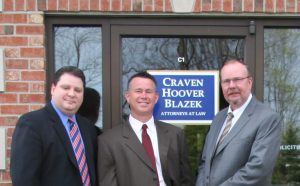There isn’t enough knowledge you can have when it comes to safe driving. The more you know, the safer you are, which means the safer others are around you as well. Continue below to review some of the most important defensive driving tips that will keep you and your passengers accident-free, and safe on the road. See the bottom of this blog for information about learning how to file a claim after being injured in a car accident that wasn’t your fault.

How to be a Defensive Driver
You can always improve your skills as a safe driver on the road. One way to do this is to ensure you are always defensively driving. What is a defensive driver? Defensive driving is the practice in which drivers operate their vehicles with optimal safety and cautious driving techniques. A defensive driver follows all traffic rules and regulations, and also stays current on all factory scheduled maintenance for their vehicle. When your car is well cared for, it performs its best, which means it’s a safe vehicle to drive. As for your own driving, summon your drivers’ education knowledge, and then combine it with some new driving techniques to help you be a safer driver that avoids causing or being involved in accidents on the road.
Top Tips for Defensive Driving
☑ DO NOT DRIVE DISTRACTED
Distracted driving is one of the most common causes of negligent car accidents, especially those that involve serious bodily harm or injury. Examples of distracted driving include driving when tired or fatigued, driving under the influence of alcohol or other substances that impair you, texting, eating, putting on makeup, sending emails, managing children in the backseat, rummaging through your purse, and anything else that requires you to take your eyes off the road for more than a second.
☑ NEVER TEXT AND DRIVE
As one of the most dangerous forms of distracted driving, it is important to never send text messages on your mobile phone while operating a vehicle. Instead, opt for hands-free technology that allows you to have both hands on your steering wheel and your eyes on the road while still maintaining a conversation. Equally important, only prompt phone calls when you are at a red stoplight, pulled over on the side of the road, or parked.
☑ KEEP A SAFE DISTANCE BETWEEN OTHER CARS
If you recall your drivers’ education knowledge, you will remember that your instructor taught you to keep at least one car length’s distance between the car in front of you. Another way to think of this is by maintaining 3 to 4 seconds worth of space between the vehicle in front of you. This will give you plenty of time to brake in the case of a sudden stop or emergency.
☑ ALWAYS GO THE SPEED LIMIT
A defensive driver always follows the speed limit, and never goes over it under any circumstances. There is a reason why municipalities set speed limits on all roads, streets, and interstates. Not only are they for safety, but they allow vehicles to travel most efficiently with optimal safety. By maintaining the speed limit, you are being a safe driver.
☑ LEARN YOUR BLIND SPOTS AND SIGNAL
Almost every car has a blind spot where two, and it is your responsibility as a driver to learn these blind spots and keep an eye on them whenever you are switching lanes are making turns. Equally important, always be sure to use your turn signals to let other drivers and even pedestrians know what direction you’re traveling.
Are you recently injured in a car accident that wasn’t your fault? Contact the Law Office of Craven, Hoover, and Blazek P.C. to speak with a seasoned attorney about your Indianapolis Indiana car accident injury. We serve clients all throughout the state, and require no initial or upfront lawyer fees.
You Should Also Read:
Common Distractions That Lead to Intersection Car Crashes
What You Need to Know About Car Accident Insurance and Injury Claims
How to Win a Car Accident Lawsuit



